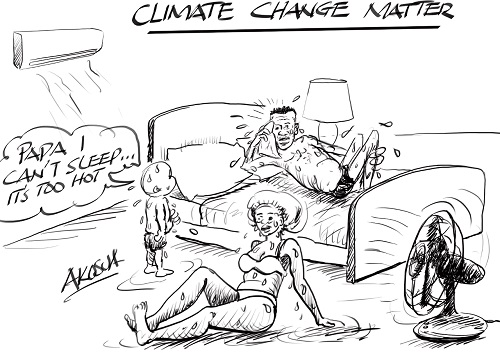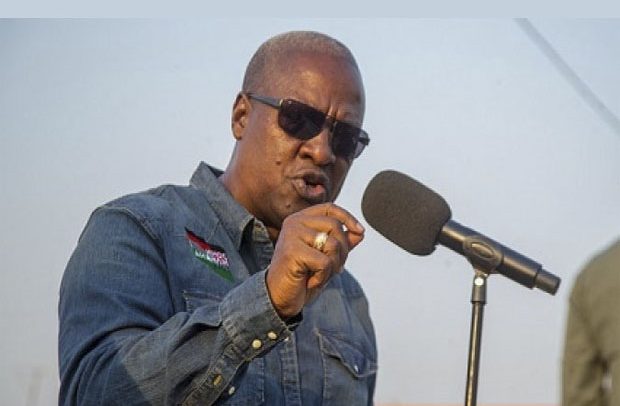
There has been little conversation generated on climate change, its impact on nature and its inhabitants. The activities and operations of industry and other commercial actions emit huge volumes of greenhouse gas into the atmosphere. This deprivation of the environment must be of concern to all stakeholders who care about the environment and the health implications resulting from degrading the environment.
Engagements at the various Conference of the Parties (COP) of the United Nations Framework Convention on Climate Change (UNFCCC) have attempted to address the impact of environmental degradation by adopting measures to minimize the amount of greenhouse gas released into the environment.
The most recent COP was held in the Arab Republic of Egypt which happened to be the 27th Conference of the Parties of the UNFCCC (COP 27). The conference largely focused on building on past achievements and also agreed on a roadmap to attain future projections. Total commitment to the pledges made by nations at the conference in their respective countries will tackle the global challenge of climate change and its impact on natures and future generations.
The president of Ghana, Nana Addo Dankwa Akufo-Addo attended (COP 27), in delivering Ghana’s statement; President Akufo-Addo bemoaned the fact that climate adaptation costs are currently outstripping current international public finance flows.
He urged nations of the world to as a matter of urgency, mobilize and scale up adaptation finance inflows to ensure that vulnerable countries are able to meet their coping and adaptation needs. He announced the launch of Ghana’s Energy Transition Framework which is a long-term plan, covering the years 2022 to 2070 and combines existing policies with new measures to achieve a just and equitable transition. It primarily seeks to decarbonize the energy sector and reach net-zero emissions by 2070 while ensuring socio-economic growth and sustainable development.
He further reminded the developed world of their promise made in Copenhagen about fourteen (14) years ago and reiterated at COP 26 to make good their long-delayed pledge to mobilize and make available one hundred billion dollars ($100 billion) annually to poorer countries to assist in the fight against climate change.
The UAE will play host to the 28th Conference of the Parties to the UNFCC (COP28). The event is scheduled to come off in November 2023. This gathering will through light on practical and ambitious solutions to the most pressing global challenge of our time. Interestingly, COP28 aims at fostering collaboration and drive transformative action in key areas such as adaptation, mitigation, finance, loss and damage, food and agriculture, and nature-based solutions.
As good as it sounds, we need to focus on actualizing the pledges made by world leaders and request of them to give an account of actions and results attained since the last conference and possibly the previous ones.
Remarkably, we should be mindful of the fact that the 17 SDGs have a deadline of 2030 to attain the goals and targets. Some progress has been made but clearly, we still have a lot to do and the current happenings suggest that we may not be able to achieve the 2023 deadline. In as much as we are likely not to achieve this feat, humanity still has a huge responsibility to make significant progress toward creating a much better future for generations yet unborn.
Going back into history, the Kyoto Protocol, of 1997, an international treaty was signed with a firm and express agreement to reduce the amount of greenhouse gas emitted. Research and scientific experiments have proven that human-related activities contribute immensely to the pollution of the atmosphere contributing to climate change.
Humanity and nature are confronted with the danger of global climate issues as sustainability is at risk either in the form of the human population, biodiversity, ecosystem etc. Commitment to the course of action by key players, activists, and advocates in the quest to mitigate the effects of climate change and global warming is urgently required. More so, coping and adaptation measures in addressing climate conditions are also important and must be implemented in the affected areas now than ever before.
The irony is that, human-beings must be the best protectors of the environment and nature, it is embarrassing to know that human beings are the guiltiest of the bad nature of the environment. Indeed, such human activities destabilize the environment and nature. The adverse effect on the life cycle of floral and fauna leaves much to be desired. We have lost significant fauna due to human activities, a clear and relevant examples are the activities of illegal mining (galamsey), bush burning and deforestation. Millions of hectares of forest cover have been lost over the years thereby exposing us to the threats of climate conditions.
Galamsey in particular has had serious adverse implications in Ghana, especially in farming communities. Some of these effects range from loss of species, farmlands, loss of soil fertility, revenue loss to the state, pollution of important water bodies, chronic health conditions, etc. Unfortunately, the many attempts to fight galamsey has proven unsuccessful. We sit on a time bomb as Ghana Water Company projects that we may not have enough water bodies to produce water for human consumption.
In such an alarming manner, the lack of innovation in farming technology contributes largely to bush burning and deforestation. In this technological world with new farming methods, farmers in most parts of rural Ghana still burn their farmlands in preparation for the next planting season.
Growing up, I personally witnessed large acres of farms being lost to bush burning. As children, we were picking burnt snails and snail shells from the debris of the burnt bushes. I can imagine the level of damage done to plant medicine, soil fertility, and other vital ingredients needed in the atmosphere for human consumption. Water bodies have been enormously affected due to these human-related activities.
Sadly, many decades after, local farmers still engage in bush burning in preparing their farmlands for planting. It demonstrates our lack of preparedness in embracing modern farming methods. It shows the lack of a relationship between the Ministry of Food and Agriculture and the other stakeholders in the agriculture subsector.
Apart from dealing with the effects of climate change, there is the need to bridge the knowledge gap of farmers as we project to increase productivity, boost local economies, and enhance the livelihoods of the local people. An improvement in the agriculture value chain will contribute significantly to the GDP of Ghana and other countries engaged in commercial agriculture.
Global climate issues disrupt weather patterns and cause floods, drought, and hot temperatures among others. Such conditions are likely to have dire consequences on bilateral and multinational relationships due to their socio-political and economic dimensions.
The desire for new and sophisticated lifestyles is largely to be blamed for the pressure we put on natural resources. It is worrying to see how we clear vegetation and forest lands for estate development even in cities. Pathetically, portions of Ghana’s wetlands have been allegedly sold out to individuals for housing projects. Such acts compromise the distinct wetland ecosystem which destroys useful species in the process. Rural-urban migration is also putting incessant pressure on the limited natural resources in and around the capital cities. However, major and significant interventions are needed to tackle climate change and its devastating impact on us especially as we have over-concentrated development in the capital cities.
Modern home designs should make provision for the cultivation of lawns, gardens, and the planting of trees in and around these estates and individual residential areas. To be pragmatic about this demand, metropolitan, municipal, and district assemblies can pass bye-laws to regulate the housing subsector.
An upsurge of greenhouse gas is a threat to global warming with the overall effect of rising water levels, hot temperatures, etc. Keta is a coastal town located in the Volta Region of Ghana. Large portions of the municipality have been hit with perennial high tidal waves. The most recent was in November 2021 when floods affected several inland areas such as homes, schools, places of worship, and social centers among others.
It was so severe that thousands of people and homes were displaced, including children and women. The seriousness of these flooding is that the impact keeps getting worse each time. In many instances, school children are not able to go to school for weeks during these occurrences. Their source of livelihoods which are mostly farming are washed away and submerged in water. The affected farmers lose everything and they are left with no option than to start all over again.
Stakeholders in the climate change architecture have been latent in activism and their course of action and because of this, their activities and advocacies have not made the expected impact at all levels. The crucial issues of climate change are still relegated to the bottom even though SDG13 – Climate Action clearly projects and outlines the demands of combating climate change. Quite frankly, the urgency of the matter requires policy formulation and the demonstration of commitment to addressing the situation.
It is important for climate economists, philanthropists, and world economic super powers to commendably participate in fighting the canker of climate change and its adverse effect. Working to address the issue of climate change is to protect and preserve the economic interest of these key stakeholders as well as citizens of the world.
In conclusion, some nations have exhibited massive support for climate change whiles others overlook it either deliberately or otherwise. Every nation is being urged to show its commitment as a good international citizen operating in a global village. Global population must be aware of the need to protect the environment for their own use and for a sustainable future. Let us be committed to the relevant provisions of the Kyoto Protocol, Conference of the Parties of the UNFCCC and other pacts and treaties seeking to arrest the disturbing impacts of climate change.
Source: Bright Ampadu Okyere (An SDG Advocate) SDG Alliance-Ghana Email: [email protected], [email protected], Twitter: @ghanasdg, Facebook: SDG Alliance-Ghana, Tel. #: 0244204664
The post Tackling climate chaos; now or never appeared first on 3News.com.
Read Full Story




















Facebook
Twitter
Pinterest
Instagram
Google+
YouTube
LinkedIn
RSS